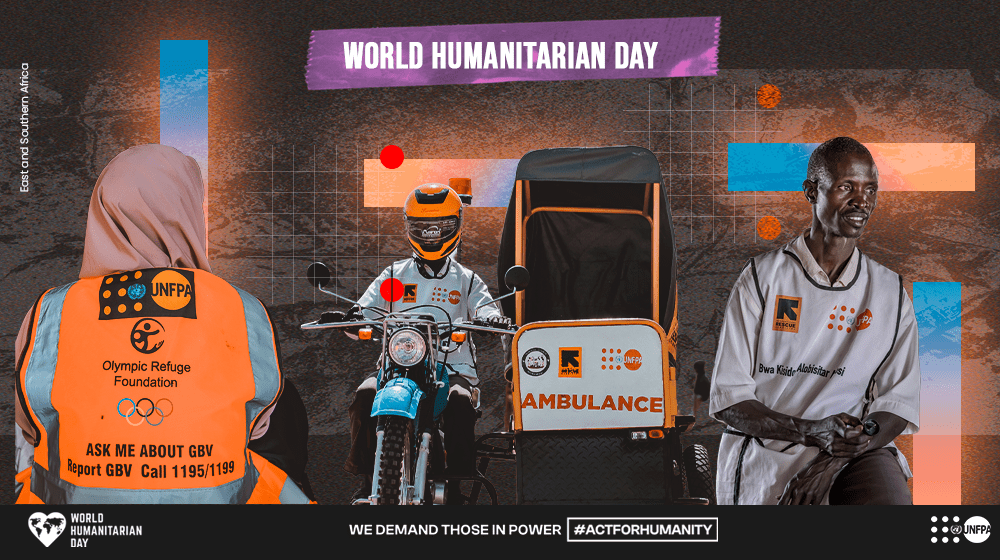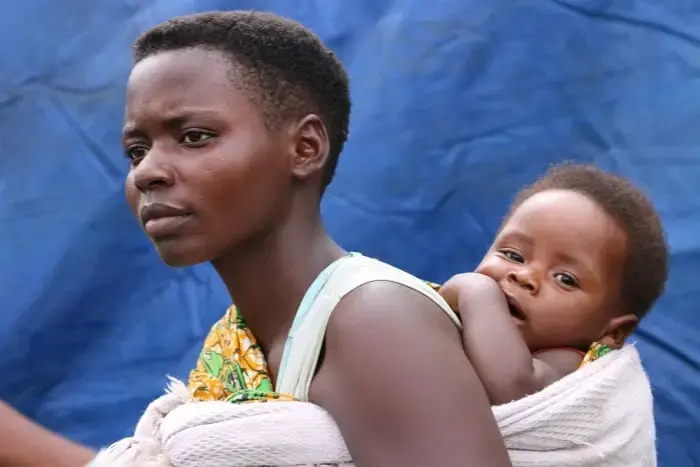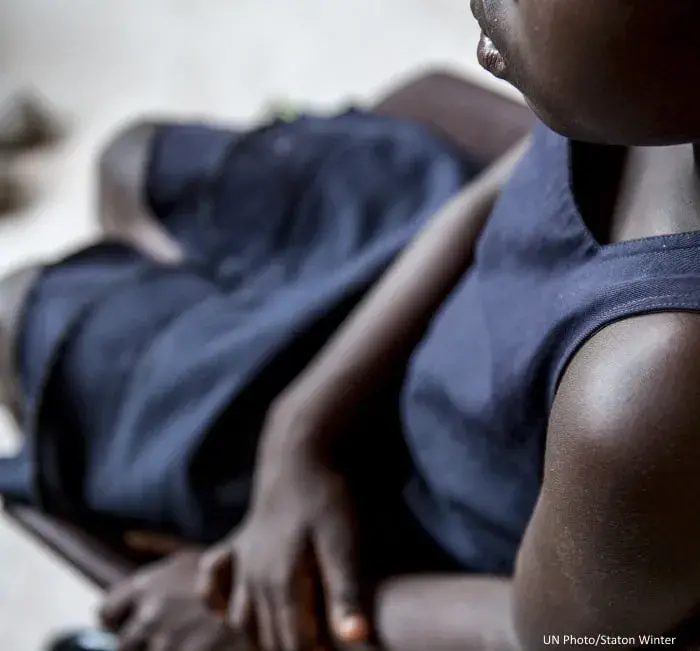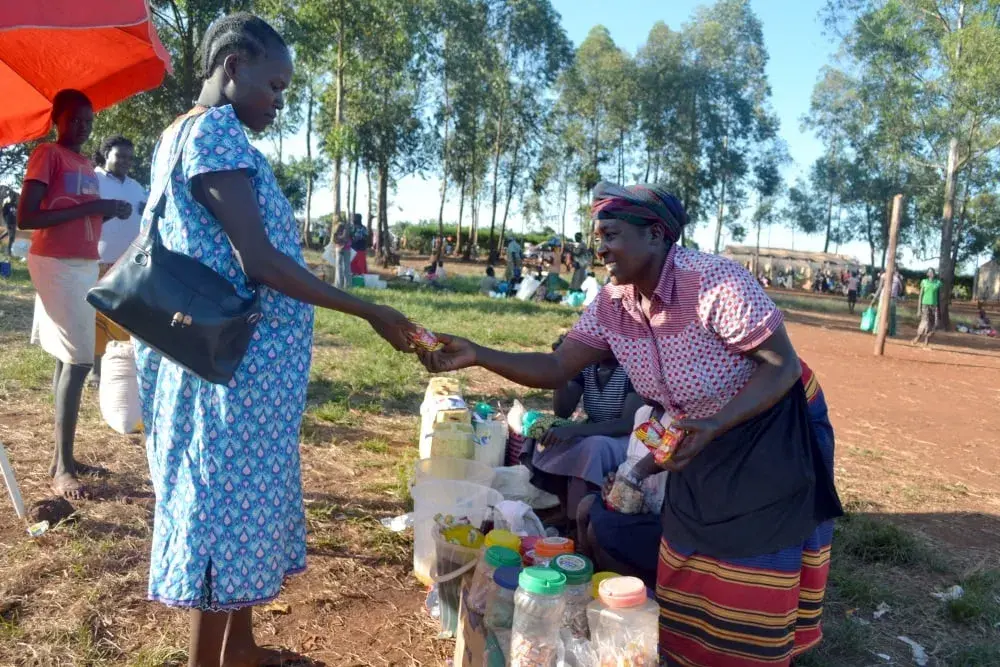Opinion Piece by Lydia Zigomo, Regional Director, UNFPA East and Southern Africa
“With one set of hands, you saved two lives,” these were the words of a new mother to Amina, a nurse of a UNFPA-supported clinic in a remote area in Mozambique.
As hundreds of aid workers like Amina rush to help, we need to pause and ask, “Who is saving the lives of those who are saving us?”
The East and Southern Africa region is facing a complex array of interconnected conflict and climate-induced humanitarian crises with nearly 65 million people in need of humanitarian assistance. Large humanitarian crises, exacerbated by ongoing conflicts, climate shocks, and acute food insecurity are in this region. Women and children are disproportionately affected, facing severe malnutrition and increased risks of disease outbreaks as overburdened health systems struggle to meet their needs. With climate shocks continuing to drive millions into destitution, there is an urgent need to expand humanitarian access.
However, we are now seeing a disturbing trend—the parallel increase of tragic losses of those caught in armed conflicts, and the men and women who rushed to save them.
We are now in early August, and 172 aid workers have already lost their lives, marking a trend that 2024 is another tragic year for civilian casualties. These numbers are not just statistics. They represent the lives of individuals committed to helping others, who paid the ultimate price while trying to save lives and provide critical services. The growing incidence of violence against humanitarian workers, especially in health care, is a concerning trend that demands concerted global and regional action.
A worrying trend for health workers
In the Democratic Republic of the Congo, six humanitarian aid workers were killed and 11 kidnapped between January and June this year, with more than 200 incidents directly targeting humanitarians in the field.
Across East and Southern Africa, humanitarians in particular health workers,ambulance drivers and other caregivers have been killed in hospitals, clinics, and even while transporting the sick and wounded. The horror stories are heart-wrenching. Health providers, including our midwives, are being attacked, kidnapped, and arrested at alarming rates, risking their lives daily while caring for others. Earlier in January 2024, a health worker with one of the aid agencies was killed during an attack in the village of Chibanga, district of Mocimboa da Praia, in the province of Cabo Delgado,in Mozambique.
When humanitarian workers are not safe and have limited access to affected persons, the survival of the most vulnerable is left to chance. Pregnant women are forced to give birth alone in unsafe conditions, and newborns are dying because their mothers cannot access the care they need. In this region during times of crisis, hospitals cease functioning, leaving thousands of displaced pregnant women struggling to access essential health care.
UNFPA at the frontlines
Worldwide, UNFPA is ensuring the rights and dignity of millions of women and girls remain intact. In 2023 alone, we provided 14 million people, most of them women and girls, with sexual and reproductive health care. We supported 1.4 million pregnant women in giving birth safely and established 1,000 safe spaces where women and girls could access protection services and support.
Yet, the need is growing. Humanitarian crises are ground zeroes for disease outbreaks. Our region faces multiple disease outbreaks, including cholera, malaria, measles, mpox, and yellow fever, posing significant threats on top of the food insecurity and broken health systems. The glue that holds humanity together are the humanitarian and health workers.
The increasing normalization of multiple crises and attacks on aid workers is worrying. Every attack on a health facility, health worker, or patient is a violation of International Humanitarian Law. These are not just attacks on individuals; they are assaults on the very fabric of our humanitarian values. Humanitarians and health-care workers provide a lifeline to millions of people whose health, rights, safety and dignity are threatened by conflict. Their ability to do their job safely must be protected. Civilians and the infrastructure they rely on must be safeguarded at all times – and especially during crises.
On this World Humanitarian Day, we must confront the reality that collectively, we are failing humanitarian workers and the people we serve. We must not allow the normalization of violence against those who are the last line of defense for the most vulnerable among us.
//END





